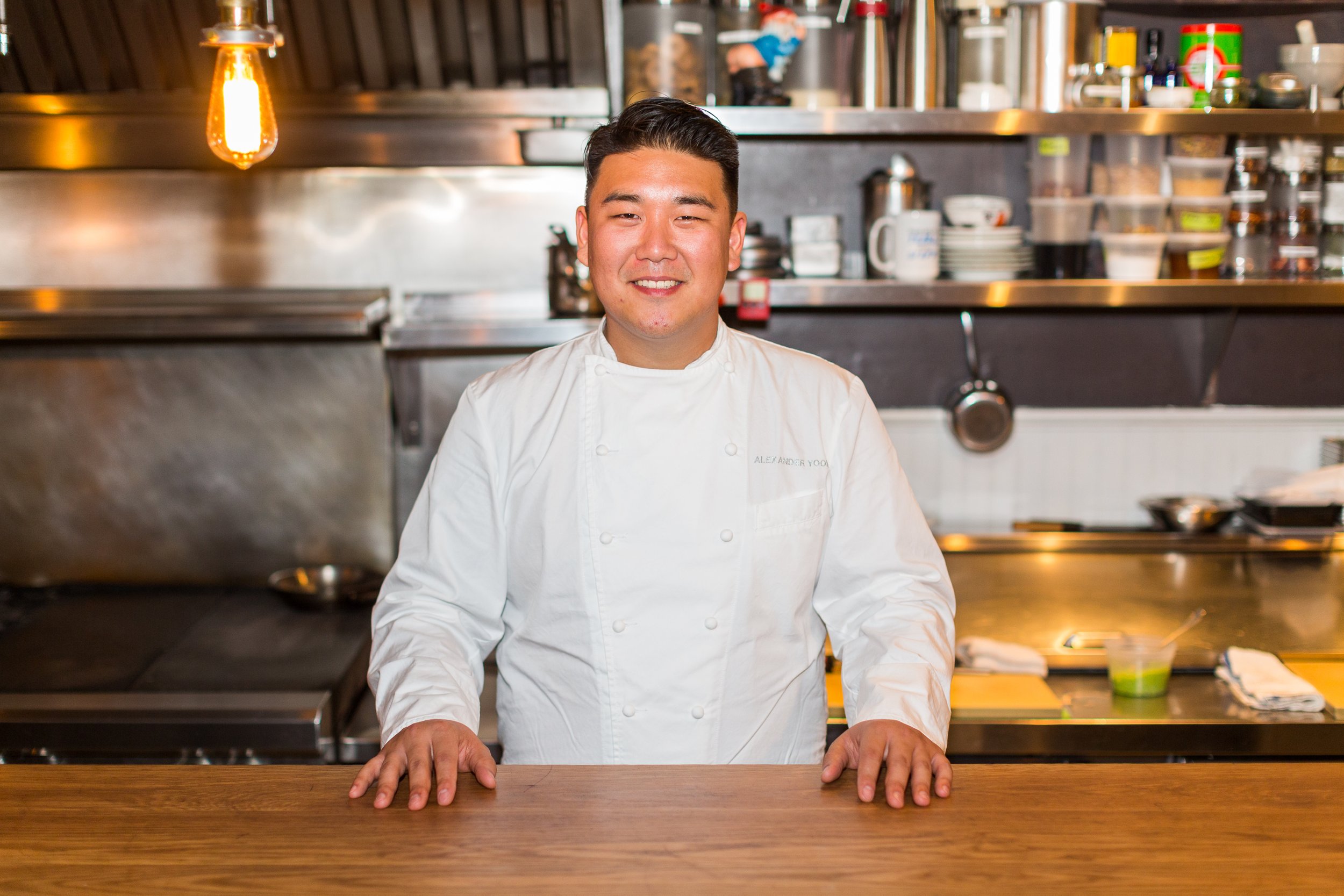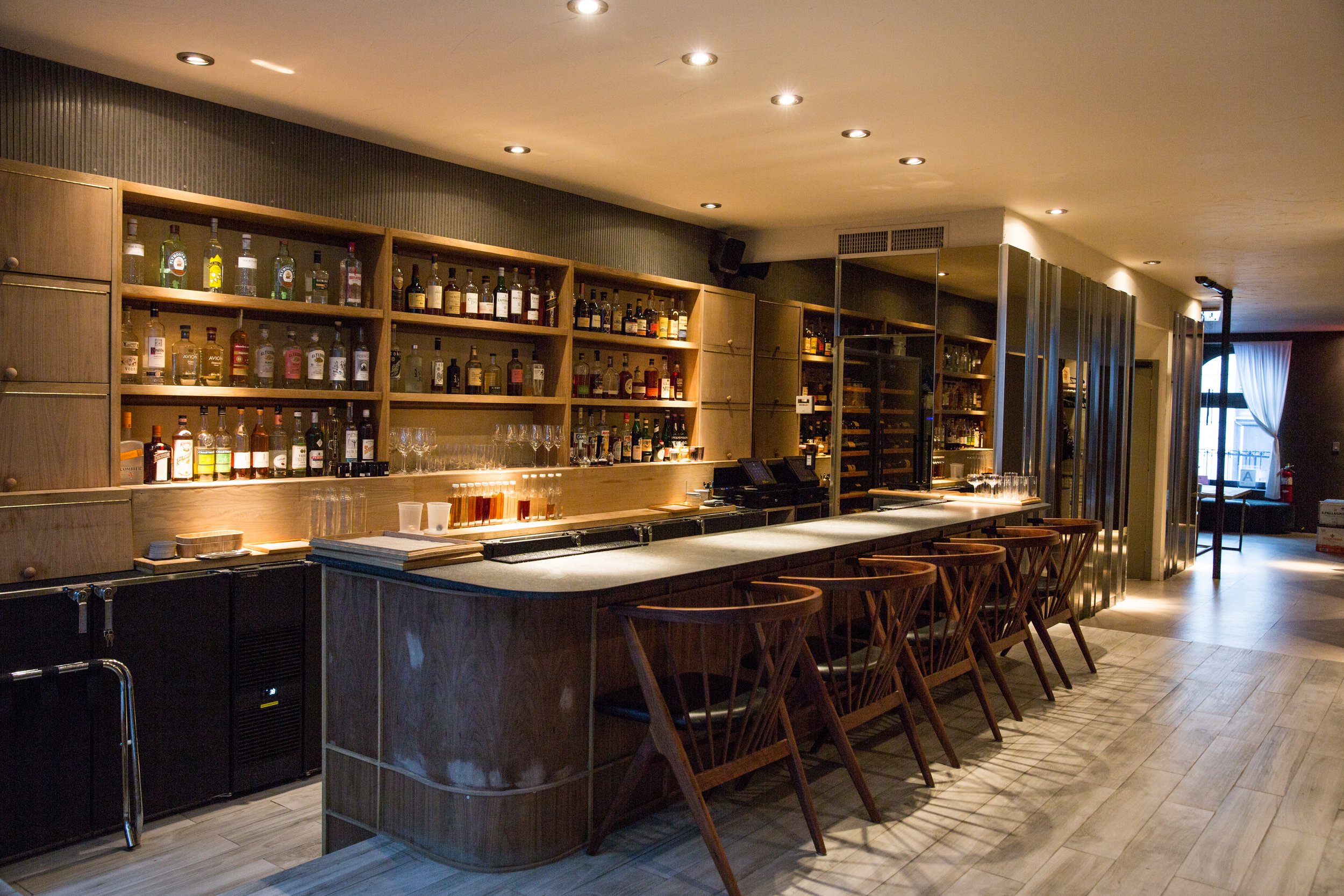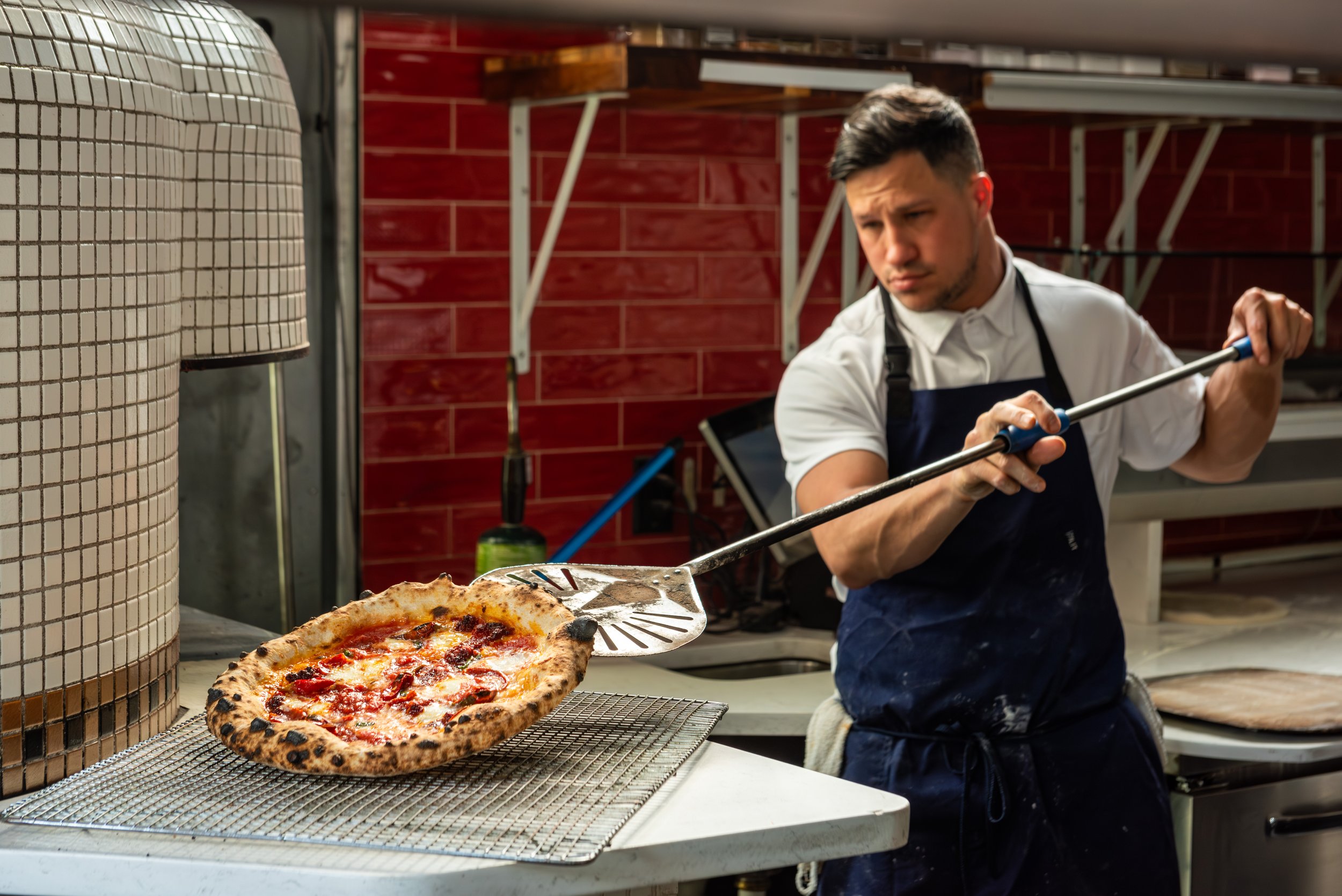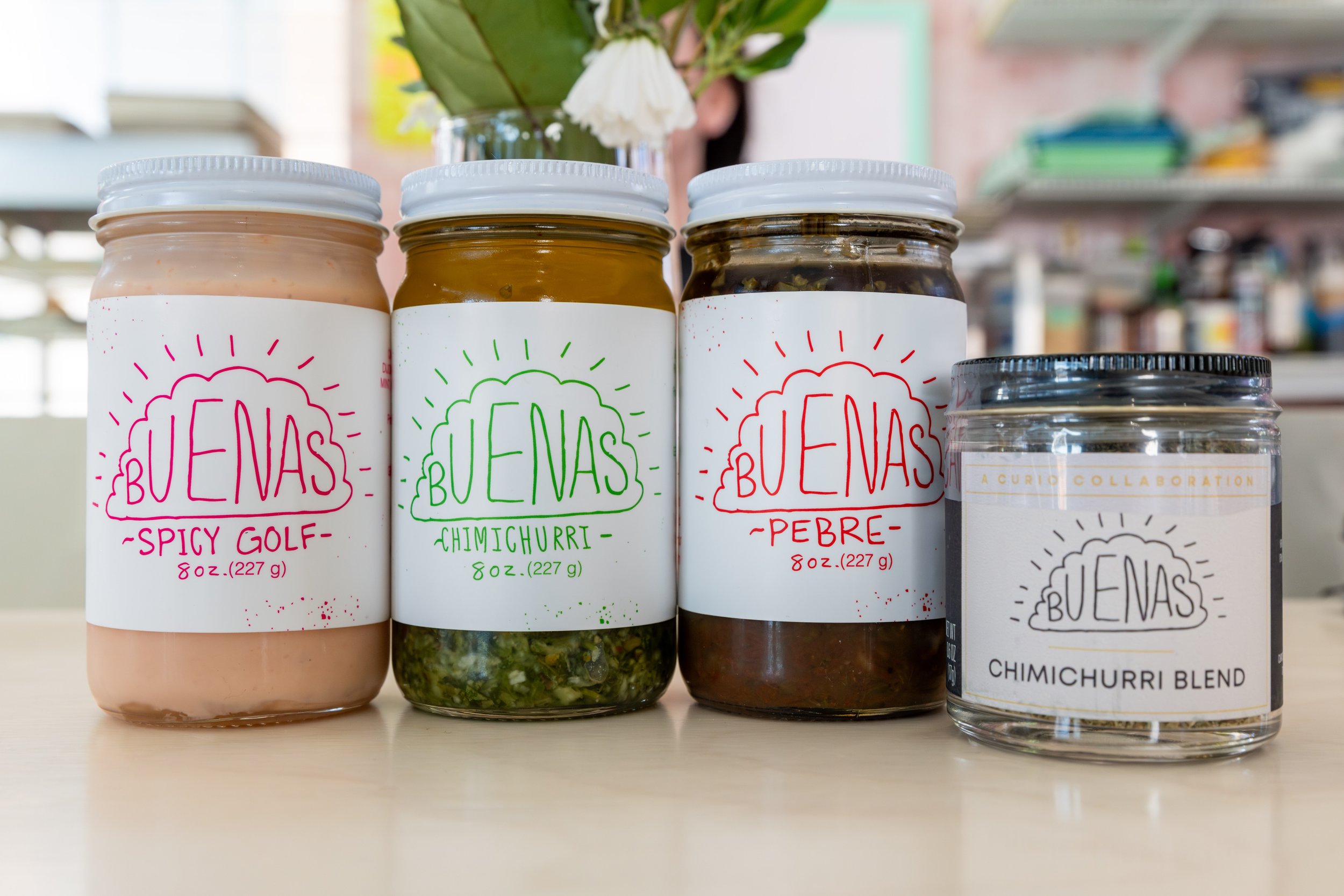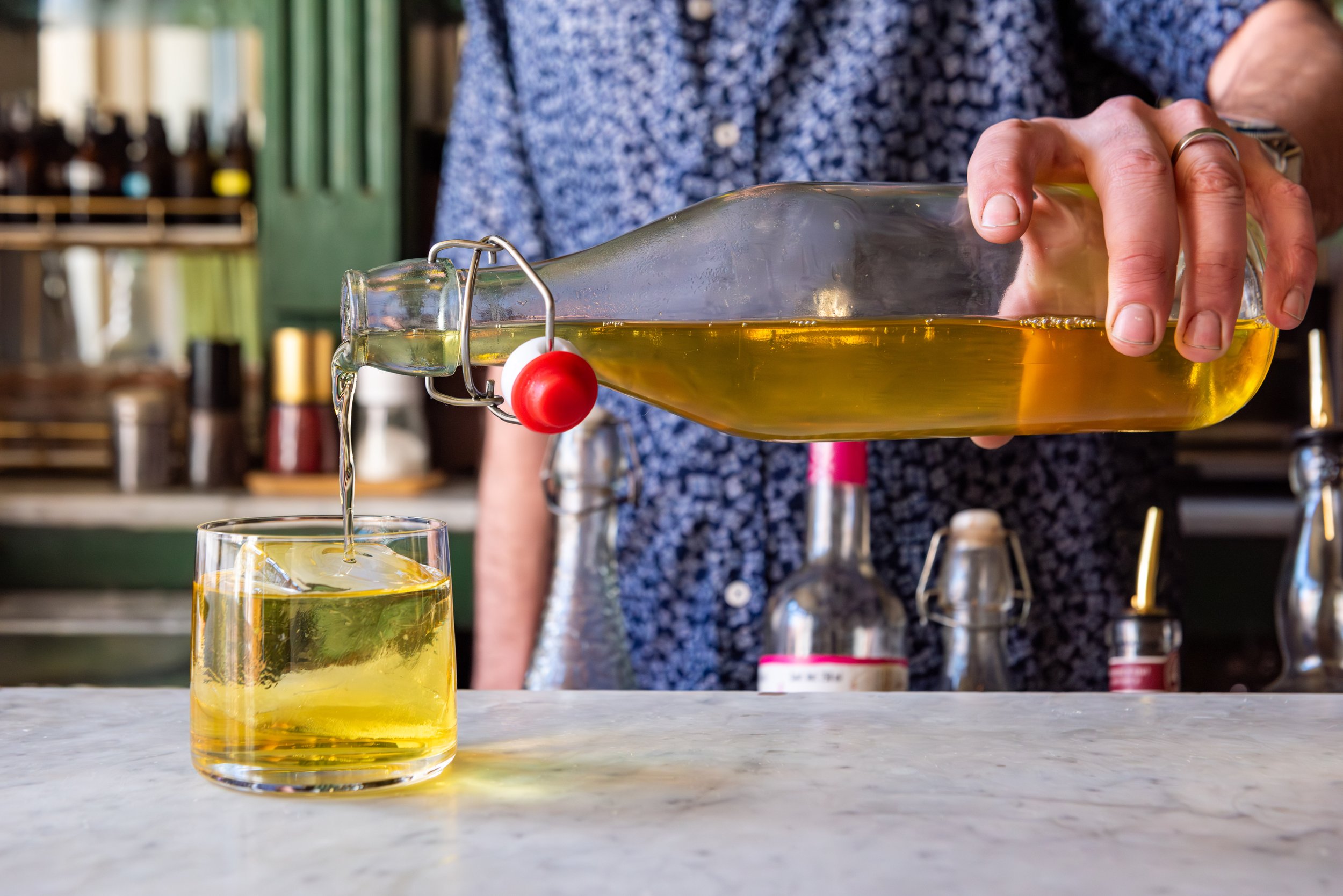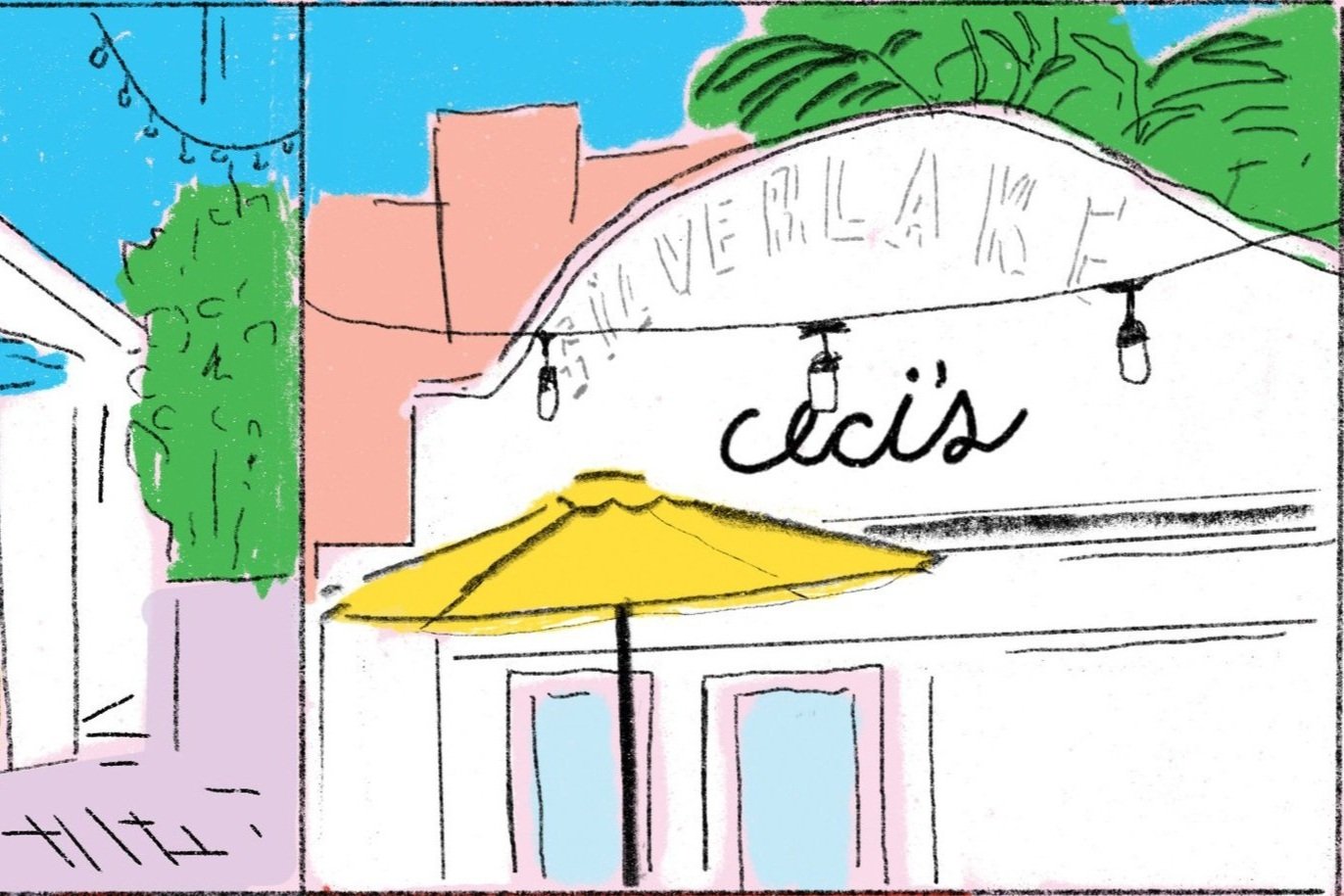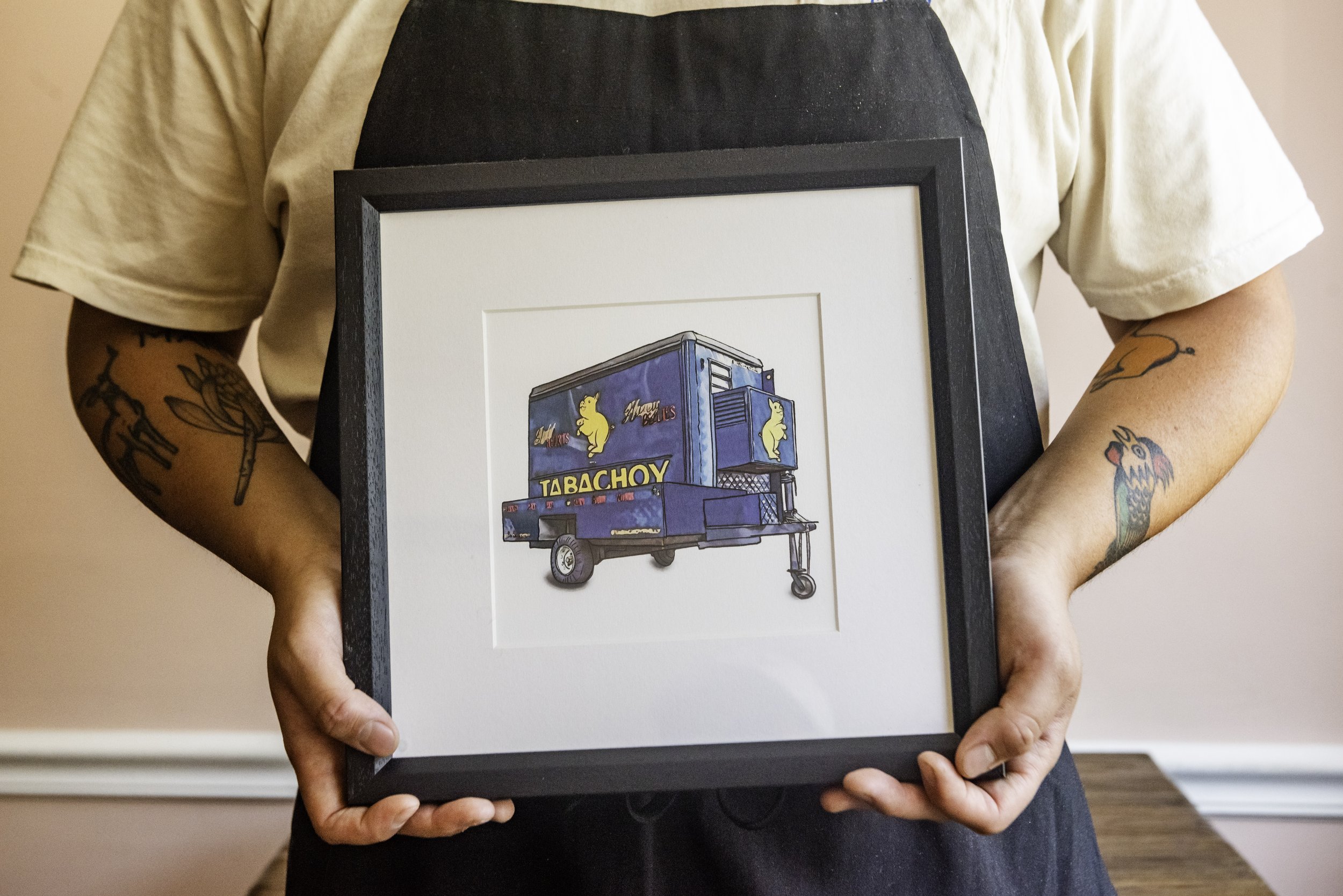Buying the Business
Great restaurants don’t have to die when the owners are ready to move on.
chef and restaurateur alexander yoon of little fish
Philadelphia’s dining scene is sometimes overlooked in favor of bigger, wealthier cities like New York and San Francisco, but there are upsides to being an underdog. Thanks to the city’s reasonable real estate market, BYO culture, and tight chef community, it is possible for a chef looking to open their own place to buy an established business and keep it going— with no buildout (sometimes, at least), plus a built-in customer base. Here, three Philly restaurateurs who’ve done it share tips on how to successfully buy a business and make it your own.
Plan on spending more than you think you’ll need.
At 26, Rising Star Chef Alex Yoon is one of the youngest restaurateurs in Philadelphia. He’s cooked at Michelin-starred restaurants in France and San Francisco, as well as beloved Philly mainstay Little Fish. As Yoon was getting ready to move back East, his former boss at Little Fish asked if he’d be interested in taking over the place. Now more than two years in, Little Fish is one of the most highly regarded restaurants in the city. For Yoon, the road there—like a Philly street after a long winter—wasn’t always smooth.
While Yoon and the seller agreed on a number, and the chef secured a business loan, he ended up needing more cash than anticipated to make the transition work. “Whatever you think you’re gonna spend, account for at least an extra third, because things always cost more and take longer than you think they will,” says Yoon.
Grilled Branzino, Sautéed Maitakes and Frisée, and Charred Green Onion Vinaigrette at LIttle Fish
Be prepared to think outside the box to make it work.
As industry lifers without a lot of cash on hand for a buildout or a liquor license, Chef Chris D’Ambro and General Manager Martina De Oliveira scoured the city and suburbs for a BYO. Every property was either too expensive, in the wrong location, or snapped up by competitors. When they heard the owners of Southwark—a neighborhood restaurant and bar that opened in 2003—were “motivated” sellers, they had to check it out. In its day, Southwark was a farm-to-table pioneer.
The turnkey operation, name recognition, and the opportunity to preserve part of Philly restaurant history appealed to D’Ambro and De Oliveira. But it was a small space a few doors down from the restaurant that sealed the deal. Attached to the main property through a back passageway, it would be included in the sale and was currently used for storage. But D’Ambro saw the potential.
He and De Oliveira took over Southwark in 2015, continuing the spot’s local legacy of quality sourcing and a killer cocktail program. Seven months later, they opened Ambra, a 16-seat jewel box serving modern Italian food out of a space that once housed sacks of onions and extra chairs.
“If Ambra had opened alone, it probably would have closed in two months,” D’Ambro says. “But because we’re attached to Southwark, it drives business there and makes it financially possible for us to have this little gem of a restaurant that we can run four days a week.”
With a shared kitchen and complementary menus to minimize waste, the couple was able to maximize their investment, keep a beloved restaurant going, and create their own concept at the same time.
chef and restaurateur chad williams of friday saturday sunday
Honor the history, but make it your own.
In 2015, Chad and Hanna Williams took over Friday Saturday Sunday, a bi-level bar and restaurant that had served stately Rittenhouse Square for 42 years. During an 18-month renovation, the couple revamped the property and changed everything about the place but the name.
Four years in, Friday Saturday Sunday is a revitalized Philly institution, due in small part to the Williams’ ability to honor the business’s history while excelling on their own terms. Nonetheless, the couple felt the pressure to live up to expectations as they brought this long-established restaurant into a new era.
“When old Friday Saturday Sunday was in its prime, people described it as the most romantic restaurant in city,” says Hanna. “A lot of couples got engaged here or had their first date here, and we would be doing a disservice to the history of the dining scene to get rid of [the name] altogether.”
Now, those customers are regulars, celebrating anniversaries at the Williams’ version of Friday Saturday Sunday. That connection would have been lost had they changed the name.
“Don’t be scared to push the restaurant forward,” says Chad. “It wasn’t always the way it was when you bought it. It went through an evolution to get there. Year one and two will be one thing, and it will naturally grow and evolve into something else in year five, and year 10 will be unrecognizable from what you started with.”

